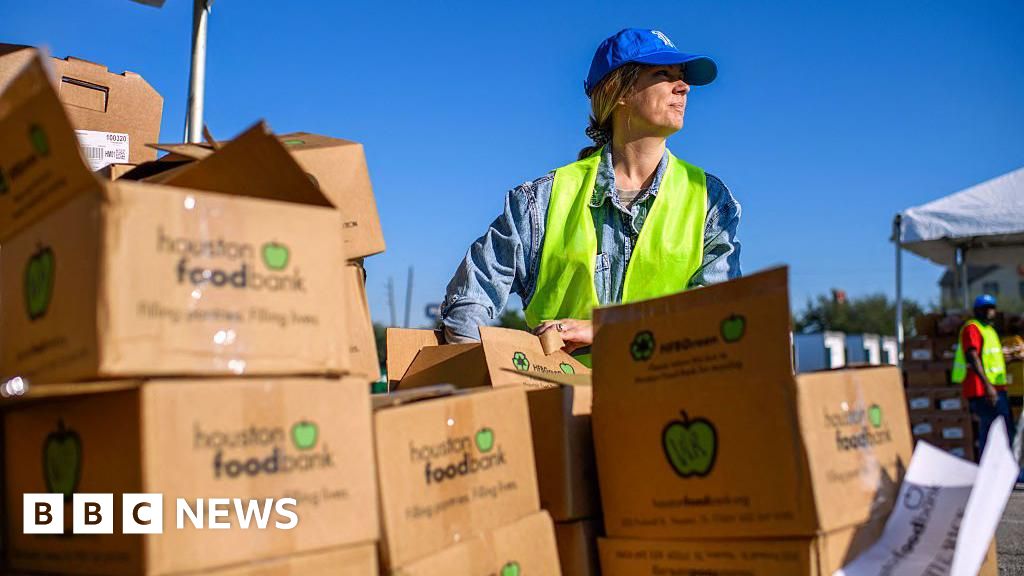EYE ON AFRICA: South Africa to fight hunger on Mandela Day – France 24

Report on Nelson Mandela Day Culinary Initiative and its Alignment with Sustainable Development Goals
Event Summary
An initiative was held in Johannesburg, South Africa, in observance of International Nelson Mandela Day. The event convened a diverse group of stakeholders to address local food insecurity, directly contributing to several United Nations Sustainable Development Goals (SDGs).
- Location: Johannesburg, South Africa
- Participants: A coalition of professional chefs, community cooks, caterers, and culinary students.
- Activity: Collective preparation of 67,000 liters of soup.
- Beneficiaries: Food-insecure populations within the community.
- Occasion: International Nelson Mandela Day, which commemorates Nelson Mandela’s 67 years of public service through 67 minutes of community action.
Alignment with Sustainable Development Goals (SDGs)
This community-driven event serves as a practical application of key principles outlined in the UN’s 2030 Agenda for Sustainable Development. The initiative’s primary focus on hunger alleviation and collaborative action highlights its significant contribution to the following SDGs:
-
SDG 2: Zero Hunger
The core objective of the event was to combat hunger and malnutrition. The production of 67,000 liters of soup represents a direct and substantial intervention to improve food security for vulnerable individuals, aligning perfectly with the targets of SDG 2, which aims to end hunger, achieve food security, improve nutrition, and promote sustainable agriculture.
-
SDG 17: Partnerships for the Goals
The success of the initiative was predicated on a multi-stakeholder partnership. The collaboration between professional chefs, local community members, commercial caterers, and educational institutions exemplifies the spirit of SDG 17. This goal emphasizes the need to revitalize global partnerships for sustainable development by bringing together diverse actors to achieve common objectives.
-
SDG 1: No Poverty
By addressing the immediate need for food, the initiative contributes to alleviating a primary symptom of poverty. Hunger and poverty are inextricably linked, and ensuring access to nutritious food is a foundational step toward breaking the poverty cycle, supporting the overarching aim of SDG 1 to end poverty in all its forms.
-
SDG 11: Sustainable Cities and Communities
This event is a model of community-based action within an urban setting. It strengthens social cohesion and resilience in Johannesburg by mobilizing local resources and volunteers to address a critical urban challenge. This directly supports the targets of SDG 11, which seeks to make cities and human settlements inclusive, safe, resilient, and sustainable.
Conclusion
The Nelson Mandela Day soup preparation event in Johannesburg is a powerful example of how localized, collaborative efforts can generate significant impact on global development targets. It demonstrates a tangible commitment to achieving Zero Hunger (SDG 2) through robust Partnerships for the Goals (SDG 17), while simultaneously contributing to poverty reduction and building more sustainable communities.
SDGs Addressed in the Article
The issues highlighted in the article, primarily the community-led initiative to combat hunger in Johannesburg, are directly connected to the following Sustainable Development Goals:
-
SDG 2: Zero Hunger
This is the most prominent SDG addressed. The article’s central theme is the effort to “help feed the hungry” by preparing and distributing 67,000 liters of soup. This action directly contributes to the goal of ending hunger and ensuring food security.
-
SDG 17: Partnerships for the Goals
The article describes a collaborative effort, stating that “dozens of South African chefs, community cooks, caterers, and culinary students came together.” This mobilization of different groups within the culinary community to achieve a common goal exemplifies the spirit of partnership that SDG 17 aims to foster.
Specific SDG Targets Identified
Based on the article’s content, the following specific targets can be identified:
-
Target 2.1: End hunger and ensure access to food
The article directly relates to Target 2.1, which aims to “end hunger and ensure access by all people, in particular the poor and people in vulnerable situations… to safe, nutritious and sufficient food all year round.” The initiative to prepare thousands of liters of soup is a direct action to provide food to “the hungry,” who represent a vulnerable population group, thereby working towards this target.
-
Target 17.17: Encourage effective partnerships
The event described aligns with Target 17.17, which is to “Encourage and promote effective public, public-private and civil society partnerships.” The collaboration of “chefs, community cooks, caterers, and culinary students” is a clear example of a civil society partnership working together to address a social issue, as promoted by this target.
Indicators for Measuring Progress
While the article is not a formal report, it contains information that can be used as or implies specific indicators for measuring progress towards the identified targets:
-
Indicator for Target 2.1
The article provides a direct quantitative measure of the intervention: “67,000 liters (17,700 gallons) of soup.” While not a formal UN indicator like the “prevalence of undernourishment,” this figure serves as a direct output indicator. It measures the volume of food provided to the hungry population, offering a tangible metric of the action taken to combat hunger on Nelson Mandela Day.
-
Indicator for Target 17.17
An indicator for partnership is implied in the description of the participants. The article states that “dozens of South African chefs, community cooks, caterers, and culinary students came together.” This description serves as a qualitative indicator, demonstrating the formation of a multi-stakeholder partnership from different sectors of the culinary community. The number and diversity of groups involved can be used to measure the scale and effectiveness of the partnership.
Summary of Findings
| SDGs | Targets | Indicators |
|---|---|---|
| SDG 2: Zero Hunger | Target 2.1: By 2030, end hunger and ensure access by all people, in particular the poor and people in vulnerable situations, to safe, nutritious and sufficient food all year round. | Output Indicator: The preparation of “67,000 liters (17,700 gallons) of soup” to feed the hungry. |
| SDG 17: Partnerships for the Goals | Target 17.17: Encourage and promote effective public, public-private and civil society partnerships, building on the experience and resourcing strategies of partnerships. | Qualitative Indicator: The collaboration of “dozens of South African chefs, community cooks, caterers, and culinary students.” |
Source: france24.com

What is Your Reaction?
 Like
0
Like
0
 Dislike
0
Dislike
0
 Love
0
Love
0
 Funny
0
Funny
0
 Angry
0
Angry
0
 Sad
0
Sad
0
 Wow
0
Wow
0












































































